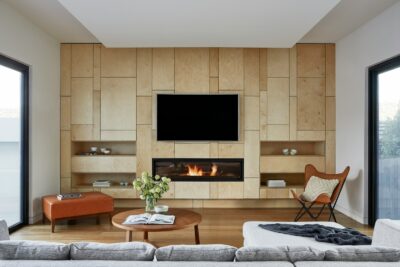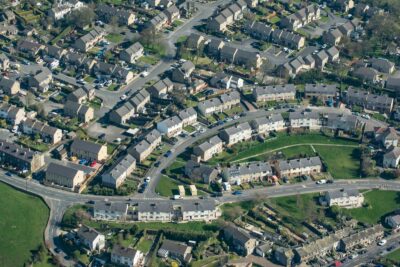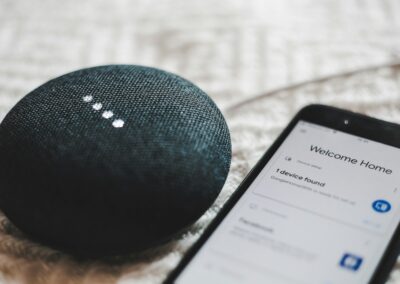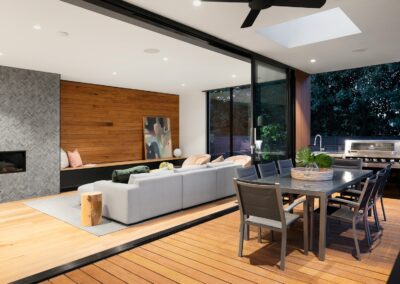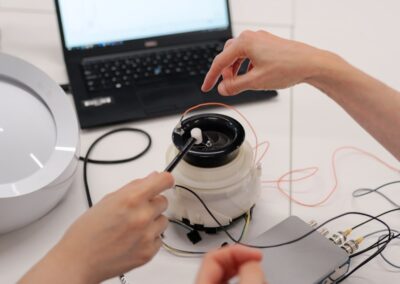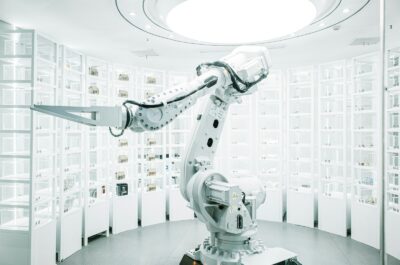How AI Transforms Modern Living
Introduction to AI-Driven Smart Homes
AI-driven smart homes represent the pinnacle of modern living, utilizing artificial intelligence to learn and adapt to the habits and preferences of residents, thereby creating a more intuitive living environment. These homes, equipped with advanced technologies, are rapidly transforming the way we live, offering unparalleled convenience, efficiency, and customization.
In Saudi Arabia, the push towards smart cities has been gaining momentum, with AI-driven smart homes at the forefront of this transformation. Projects like NEOM aim to integrate smart home technology as a core component of urban living, leveraging AI to enhance the quality of life for residents. By understanding and predicting user behavior, these systems can automate daily routines, reduce energy consumption, and provide personalized experiences that cater to individual preferences.
The UAE, particularly cities like Dubai, is also pioneering the integration of AI in smart homes. With a strong emphasis on innovation and sustainability, Dubai’s smart home initiatives focus on creating environments that are not only technologically advanced but also environmentally friendly. These homes are designed to learn from the habits of their residents, using AI to optimize energy usage, improve security, and ensure a seamless living experience.
The Role of AI in Learning and Adapting to Resident Habits
Personalized Living Experiences
AI-driven smart homes use sophisticated algorithms to analyze the daily habits and preferences of residents, enabling the creation of personalized living experiences. By collecting data from various sensors and devices, these systems can learn when residents typically wake up, their preferred room temperatures, lighting preferences, and even their favorite entertainment options. This data is then used to automate and customize the home environment, providing a level of convenience and comfort that was previously unattainable.
In Riyadh, the implementation of AI in smart homes is seen as a crucial step towards modernizing urban living. By adopting AI technologies, homes in Riyadh can offer tailored experiences that align with the cultural and lifestyle preferences of Saudi residents. This personalization not only enhances the user experience but also promotes a sense of wellbeing and satisfaction among residents.
Dubai’s approach to AI-driven smart homes also emphasizes personalization. By integrating AI with smart home systems, Dubai aims to create living spaces that adapt to the unique needs of each resident. This includes adjusting lighting and temperature settings based on individual preferences, automating household chores, and even providing personalized health and wellness recommendations.
Energy Efficiency and Sustainability
One of the most significant benefits of AI-driven smart homes is their ability to enhance energy efficiency and promote sustainability. By continuously monitoring and analyzing energy usage patterns, AI systems can optimize the use of electricity, heating, and cooling systems, reducing waste and lowering utility bills. This is particularly important in regions like Saudi Arabia and the UAE, where extreme temperatures can lead to high energy consumption.
In Saudi Arabia, smart home initiatives are aligned with the country’s Vision 2030 goals, which emphasize sustainability and environmental stewardship. By incorporating AI technologies into smart homes, Saudi Arabia aims to reduce its carbon footprint and promote energy conservation. These systems can automatically adjust energy usage based on real-time data, ensuring that homes are both comfortable and eco-friendly.
Dubai’s commitment to sustainability is evident in its smart home projects. AI-driven systems in Dubai’s smart homes are designed to optimize energy usage, utilizing renewable energy sources wherever possible. This not only helps in reducing the environmental impact but also aligns with Dubai’s vision of becoming a global leader in sustainable urban development.
Security and Safety Enhancements
Advanced Security Systems
AI-driven smart homes are equipped with advanced security systems that utilize artificial intelligence to provide enhanced protection for residents. These systems can monitor the home environment in real-time, detect unusual activities, and alert homeowners or authorities in case of potential security threats. AI-powered cameras, motion sensors, and smart locks are some of the technologies used to ensure a safe living environment.
In Riyadh, the integration of AI in smart home security systems is a key focus area. By leveraging AI technologies, homes in Riyadh can offer robust security features that protect residents from potential threats. These systems can learn and adapt to the security needs of each household, providing personalized protection that enhances the overall safety of the home.
Dubai’s smart home projects also prioritize security. AI-driven security systems in Dubai’s smart homes are designed to be proactive, detecting potential threats before they escalate. This includes features such as facial recognition, smart alarms, and real-time monitoring, ensuring that residents feel secure and protected at all times.
Health and Wellness Monitoring
AI-driven smart homes are also equipped with health and wellness monitoring systems that use artificial intelligence to track the well-being of residents. These systems can monitor vital signs, detect health anomalies, and provide real-time health alerts. This is particularly beneficial for elderly residents or those with chronic health conditions, as it enables timely medical intervention and promotes better health outcomes.
In Saudi Arabia, the adoption of AI in smart homes extends to health and wellness monitoring. By integrating AI technologies, homes in Saudi Arabia can offer health tracking features that enhance the quality of life for residents. These systems can provide personalized health recommendations, track fitness goals, and even connect residents with healthcare professionals when needed.
Dubai’s approach to smart home health monitoring is also forward-thinking. AI-driven systems in Dubai’s smart homes can monitor the health of residents in real-time, providing insights and alerts that promote proactive health management. This includes features such as smart mirrors that track physical fitness, sleep monitoring systems, and AI-powered virtual health assistants.
Conclusion
AI-driven smart homes are revolutionizing modern living by creating intuitive and personalized environments that cater to the habits and preferences of residents. In regions like Saudi Arabia and the UAE, these technologies are at the forefront of urban development, aligning with broader goals of sustainability, innovation, and improved quality of life. By leveraging AI, smart homes can optimize energy usage, enhance security, and promote health and wellness, setting new standards for modern living.
As the adoption of AI in smart homes continues to grow, the benefits of these technologies will become increasingly apparent. By fostering international collaborations and adhering to global standards, countries can ensure that the development of AI-driven smart homes contributes positively to both the environment and society. This forward-thinking approach will pave the way for a sustainable and technologically advanced future, where homes are not just living spaces but intelligent ecosystems that enhance the overall quality of life for their residents.
—
#AI-DrivenSmartHomes #ArtificialIntelligence #SmartHomeTechnology #IntuitiveLiving #ResidentPreferences #AdaptiveTechnology #SaudiArabiaInnovation #UAEDevelopment #RiyadhSmartHomes #DubaiTechnology #ModernLiving #BusinessSuccess #LeadershipSkills



